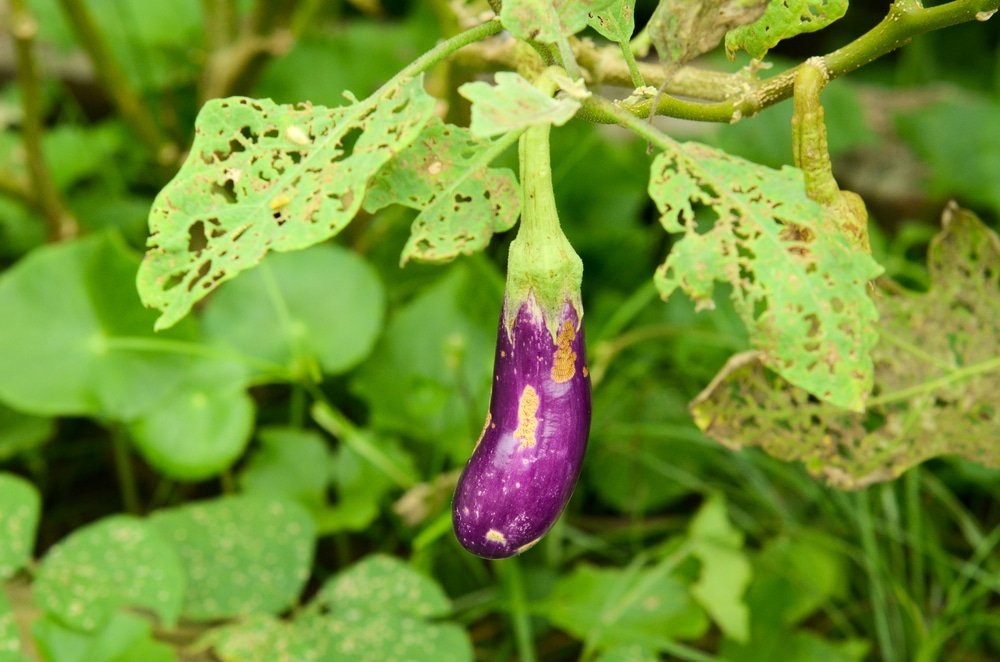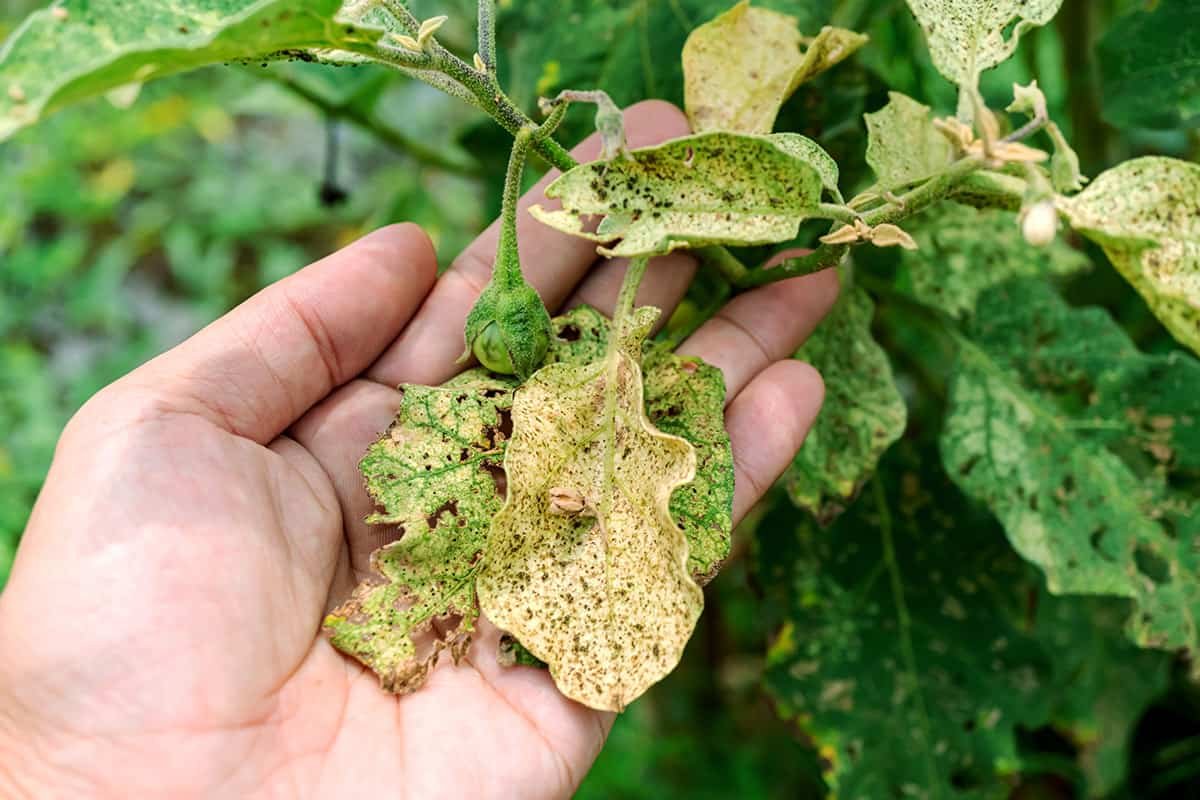Eggplants (Solanum melongena), also known as aubergines, are a popular and versatile crop enjoyed worldwide. However, like all plants, eggplants are susceptible to a variety of diseases that can significantly affect their yield and quality. Understanding these diseases and their treatments is crucial for maintaining healthy plants and ensuring a bountiful harvest.
Common Eggplant Diseases
- Verticillium Wilt
- Symptoms: Yellowing and wilting of lower leaves, stunted growth, and dark discoloration in the stem’s vascular system.
- Cause: Soil-borne fungi Verticillium dahliae and Verticillium albo-atrum.
- Treatment: Rotate crops with non-susceptible species, solarize soil to kill pathogens, and use resistant eggplant varieties.
- Fusarium Wilt
- Symptoms: Yellowing and wilting of leaves, often beginning on one side of the plant, brown streaks in the stem, and plant death.
- Cause: Soil-borne fungus Fusarium oxysporum f. sp. melongenae.
- Treatment: Similar to Verticillium wilt—crop rotation, soil solarization, and planting resistant varieties. Removing and destroying infected plants is also recommended.
- Phomopsis Blight
- Symptoms: Dark, sunken spots on leaves, stems, and fruits, leading to fruit rot and plant collapse.
- Cause: Fungus Phomopsis vexans.
- Treatment: Use fungicide sprays, rotate crops, and practice good garden hygiene by removing infected plant debris.
- Anthracnose
- Symptoms: Small, water-soaked lesions on leaves and fruits that expand and turn dark, leading to fruit rot.
- Cause: Colletotrichum species fungi.
- Treatment: Apply appropriate fungicides, avoid overhead watering, and ensure good air circulation around plants.
- Bacterial Wilt
- Symptoms: Sudden wilting of the plant without yellowing, followed by plant death. Cutting the stem reveals a slimy, brownish bacterial ooze.
- Cause: Bacterium Ralstonia solanacearum.
- Treatment: Plant resistant varieties, practice crop rotation, and improve soil drainage.
- Powdery Mildew
- Symptoms: White, powdery fungal growth on leaves, stems, and fruits, leading to yellowing, distorted growth, and reduced yield.
- Cause: Various species of fungi, including Leveillula taurica.
- Treatment: Apply sulfur-based or other appropriate fungicides, ensure proper spacing for air circulation, and remove affected plant parts.
- Damping-Off
- Symptoms: Seedlings fail to emerge, or young plants collapse and die due to stem rot at the soil line.
- Cause: Soil-borne pathogens like Pythium, Rhizoctonia, and Fusarium species.
- Treatment: Use sterilized soil for starting seeds, avoid overwatering, and use fungicide-treated seeds.

Integrated Disease Management Strategies
- Cultural Practices:
- Crop Rotation: Rotate eggplants with non-solanaceous crops to break the disease cycle.
- Sanitation: Remove and destroy infected plant debris to reduce disease inoculum.
- Soil Health: Maintain healthy soil through organic amendments and proper pH balance to reduce disease susceptibility.
- Resistant Varieties: Select and plant eggplant varieties that are resistant or tolerant to common diseases.
- Chemical Controls: Use fungicides and bactericides as a last resort, following label instructions to avoid resistance development. Regularly switch between different chemical classes to prevent pathogens from becoming resistant.
- Biological Controls: Utilize beneficial microorganisms that antagonize plant pathogens, such as Trichoderma species for soil-borne fungal diseases.
- Monitoring and Early Detection: Regularly inspect plants for early signs of disease and take immediate action to manage outbreaks.
Conclusion
Managing eggplant diseases requires a multifaceted approach that includes cultural practices, resistant varieties, and appropriate chemical or biological controls. By understanding the symptoms, causes, and treatments of common eggplant diseases, growers can effectively protect their crops and ensure a healthy and productive garden. Regular monitoring and prompt action are key to preventing the spread of diseases and maintaining the overall health of eggplant plants.


Leave A Comment